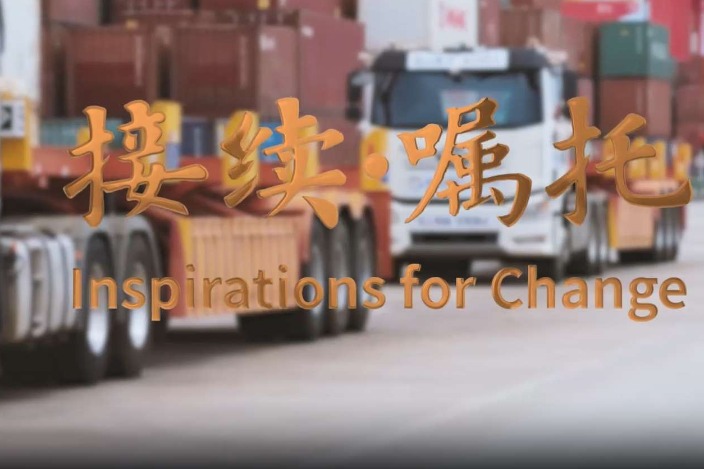Chinese economy still has much potential


Last year, international observers accused China of spreading global inflation and deflation, and causing economic collapse. In reality, the Chinese economy has achieved a soft rebound despite the dire global economic landscape.
As global business and political leaders swarmed to the World Economic Forum in Davos, Switzerland, Premier Li Qiang took the podium to tell the world that the Chinese economy rebounded and moved upward in 2023. The Chinese economy, in fact, grew by about 5.2 percent last year— at a slightly higher rate than the official target of "around 5 percent".
And, as Li said, no matter how the global situation changes, China will adhere to its fundamental policy of opening-up, and keeping opening its door wider and wider.
In the fourth quarter of 2023, China's GDP growth reached 5.2 percent. While retail sales in December grew by 7.4 percent year-on-year, consumers remained cost-conscious despite gradually returning to the marketplace.
However, the Spring Festival holiday is likely to generate "9 billion passenger trips", which will accelerate growth in the retail, tourism and transportation sectors.
As a matter of fact, there is significant pent-up demand in China. The need is to unleash that consumption power, and the first condition is a promising job market outlook.
According to China's National Bureau of Statistics, the surveyed unemployment rate in cities in December was 5.1 percent.
Also, industrial activities are picking up, with industrial production in December increasing by 6.8 percent year-on-year, thus beating forecasts. The same goes for fixed asset investment, which increased by 3 percent in 2023, slightly above the predicted increase.
Importantly, there is also broad expectation for targeted fiscal support. And in light of the raised real interest rates, there is still room for rate cuts. When will they come? The 10-year real yield of China is still higher than the US, where policy rates remain high due to perceived inflation concerns. As the US Federal Reserve is likely to enter the rate cut cycle later this year, China's cuts may ensue.
That's why China's top leader put emphasis on making sustained efforts to develop the country's "financial power" so as to build a safe, efficient and internationally competitive financial system.
As Premier Li noted at Davos, China has now some 400 million people in the middle-income group, and that number is expected to double to 800 million in the next decade. In contrast, in the past four decades, the real income of the middle-class in the US has largely stagnated, with the situation in the European Union not being dissimilar.
As Li said at Davos, in the next decade, urbanization in China will create huge demand in sectors such as housing, education, healthcare and eldercare. And another 300 million people are expected to migrate from rural to urban areas in China and thus boost the secular potential for investments in upgrading the urban transport and telecom infrastructure, creating new opportunities for domestic and international financial institutions.
After several years of deleveraging in the real estate sector, the Chinese economy seems to have made a soft landing which bodes well for a soft economic rebound in 2024. The full recovery of the property market will take time, though. The tier-one high-income mega-cities are usually able to borrow more to support local development, while relatively low-income cities are constrained by aggressive public finance.
As Standard & Poor's Global Ratings report said, the Chinese property sector, though evolving, seems to have steadied and struck a balance. At the same time, China has shifted from exports- and investment-driven growth to high-quality development driven by consumption and innovation, a massive process that took a century or so for the West, but just few decades for China.
In the mid-2000s, steel production growth peaked at 30 percent; today, it is decelerating into negative territory. In two to three decades, China has moved from catching up with the West to becoming a leader in cutting-edge technologies and innovations. For instance, China is a leader in electric vehicles (EVs), both in terms of production and consumption. The county's already booming EV sales is much higher than that of the US and other adopters of EVs.
Accordingly, economic reforms are likely to shift away from the supply side to the demand side. To expedite this transition, policymakers are likely to focus increasingly on the constraints of human capital rather than infrastructure, which worked in the past. These changes require parallel reforms and support, particularly in the property, education and healthcare sectors.
However, unfinished housing units, local government debt and geopolitical challenges remain risks this year. The first two could now be regarded as soft risks; but the third is a black swan, highly consequential, yet unpredictable.
Perhaps that's why just a month ago, Gita Gopinath, deputy chief of the International Monetary Fund, asked whether the international community is on the brink of "Cold War II".
The challenging external headwinds reflect some moderation as for now. But as long as the West's geopolitical unilateralism and trade protectionism prevail, global recovery will remain constrained by downside risks and the potential for new and ever-more destructive, unwarranted wars.
As China's massive transition and the West's secular stagnation suggest, what the world needs is peace and economic development, not economic unilateralism and geopolitical friction.
The author is the founder of Difference Group and has served at the India, China and America Institute (US), Shanghai Institutes for International Studies (China) and the EU Centre (Singapore). The views don't necessarily reflect those of China Daily.
The opinions expressed here are those of the writer and do not necessarily represent the views of China Daily and China Daily website.
If you have a specific expertise, or would like to share your thought about our stories, then send us your writings at opinion@chinadaily.com.cn, and comment@chinadaily.com.cn.
































